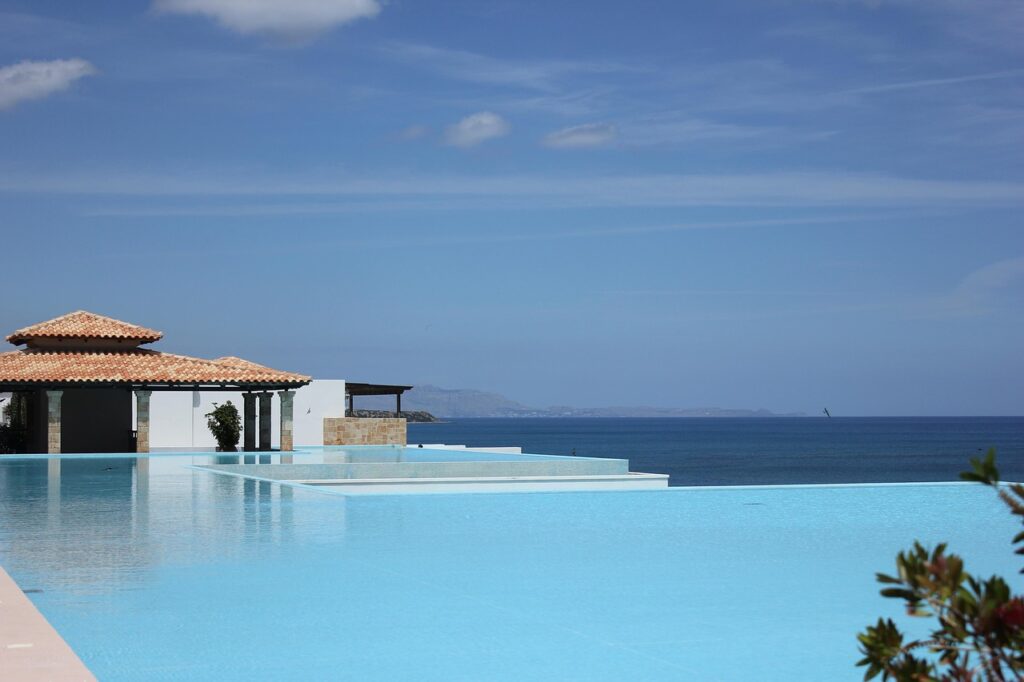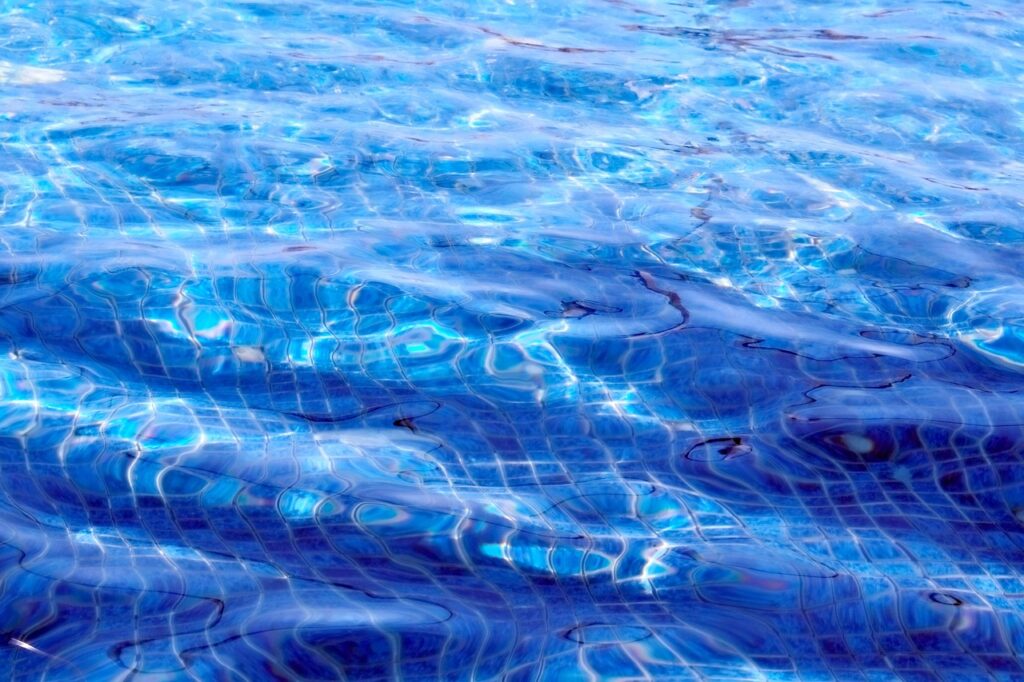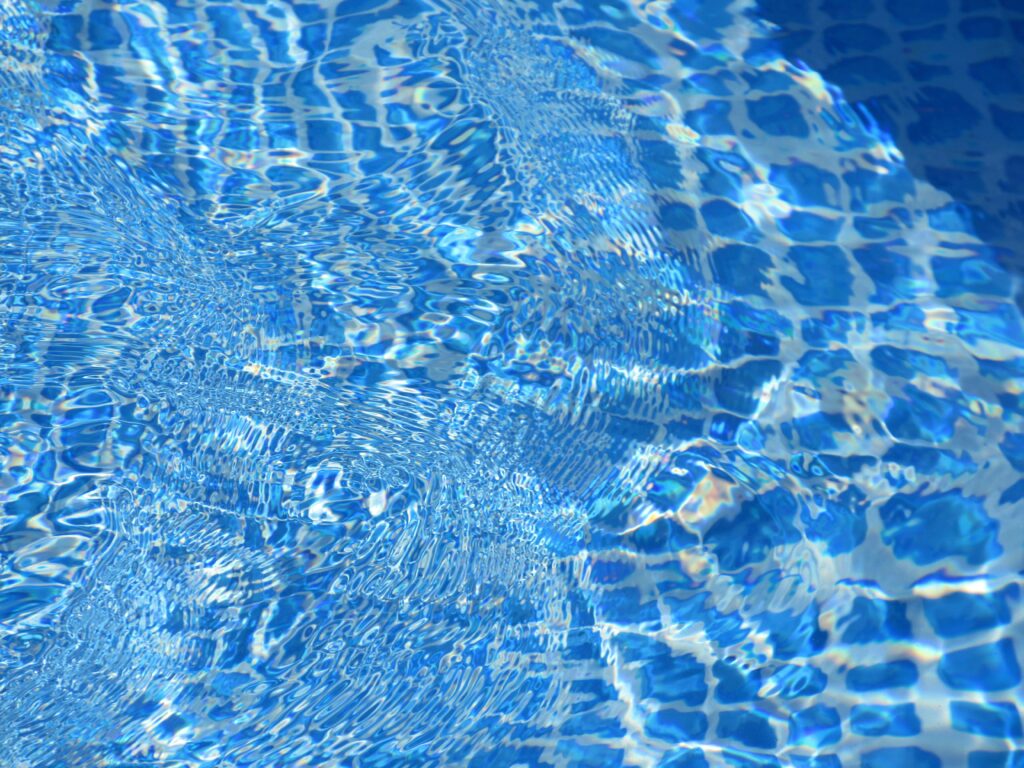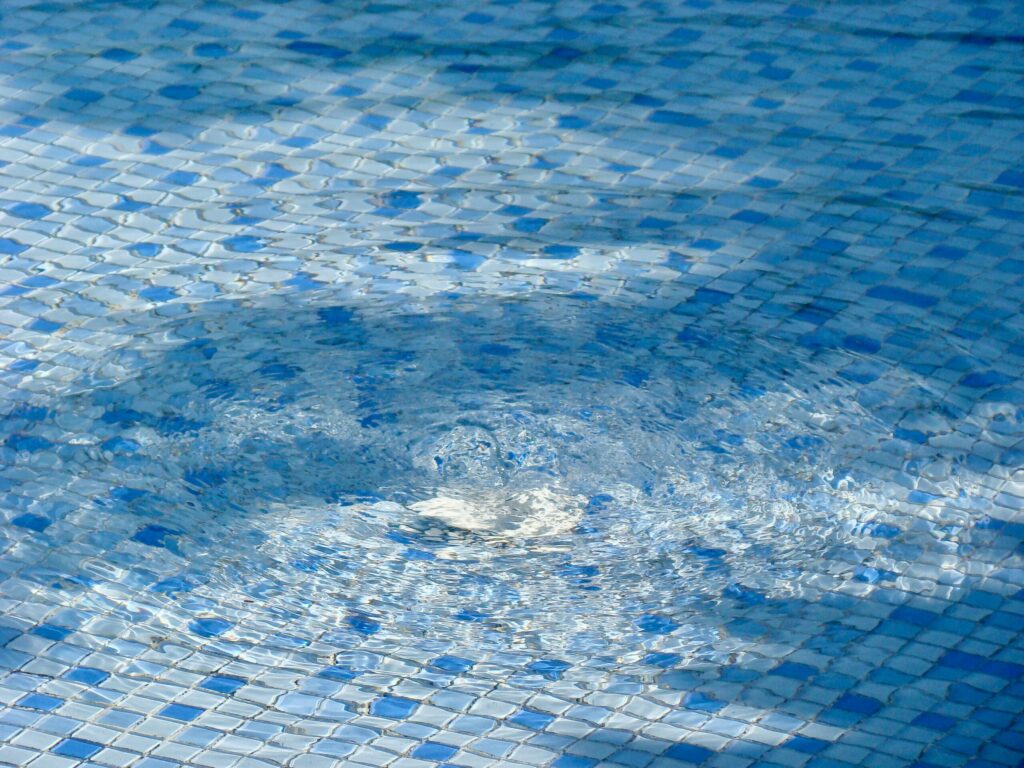As a villa owner in Dubai, you know that a swimming pool is a treasured asset—a personal oasis of relaxation and family fun. But the key to a truly enjoyable pool is not just its design; it’s the quality of the water itself. In Dubai’s unique climate, with its intense heat and frequent sandstorms, maintaining hygienic, crystal-clear water is a top priority.
This article is your essential guide to pool water testing, a simple yet crucial task that ensures your pool remains a safe, healthy, and inviting environment for everyone to enjoy.
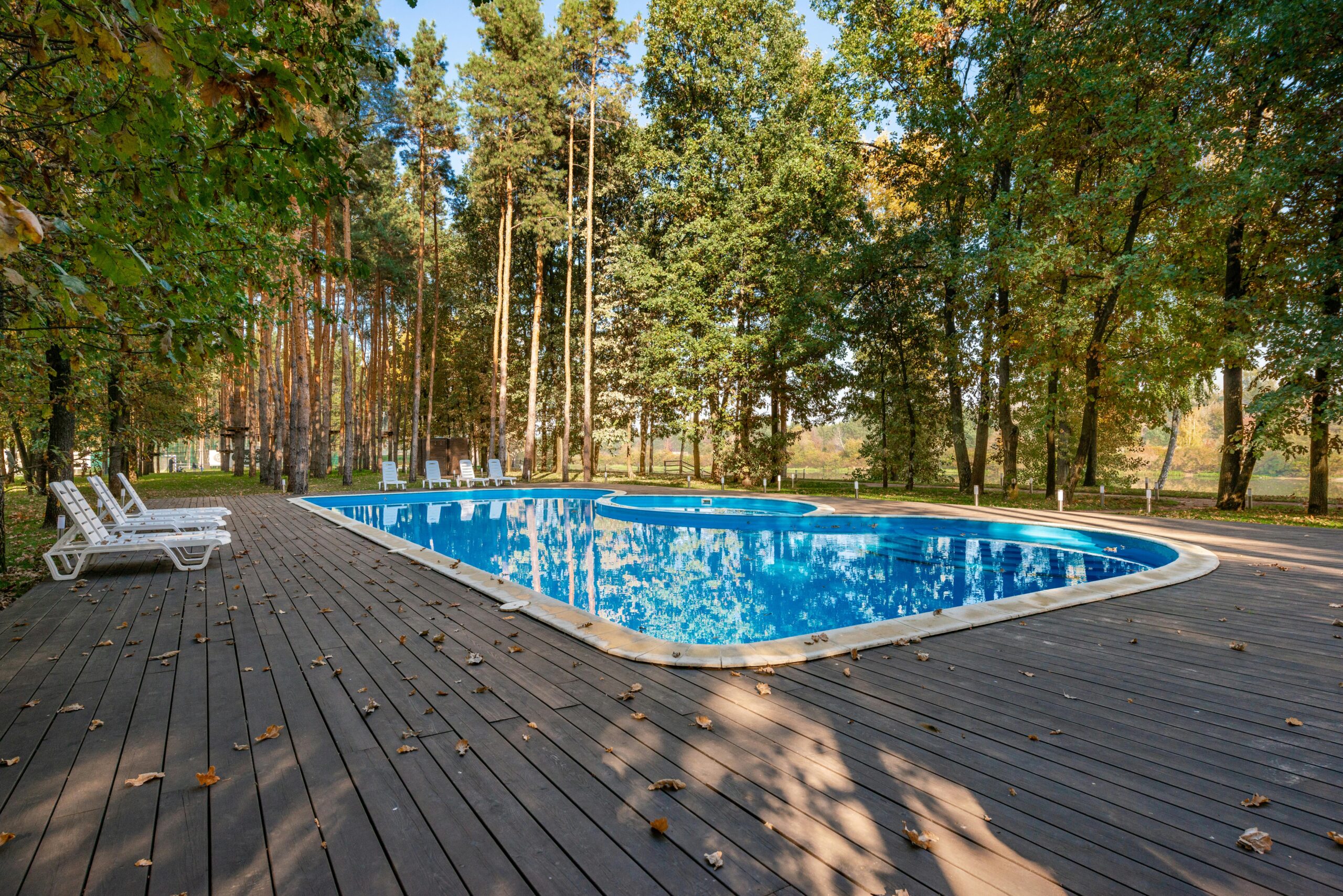
Introduction: Why Water Testing is Crucial for Your Pool
A pool that looks clean isn’t always safe. Harmful bacteria, viruses, and algae can thrive in water that looks clear but has an imbalanced chemical composition. Regular pool water testing is the only way to confirm that your water is properly sanitized and balanced. It helps you prevent common problems like:
Contaminant Growth:
An improper chlorine level can lead to the rapid growth of algae and germs, making the water unsafe.
Corrosion and Damage:
Incorrect pH levels can corrode your pool’s surfaces and equipment, leading to costly repairs.
Bather Discomfort:
Unbalanced water can cause skin and eye irritation, ruining the swimming experience.
By making water testing a regular part of your pool maintenance routine, you can preemptively address these issues and save yourself time and money in the long run.
The Key Parameters You Must Test
To ensure your pool water is safe and balanced, you must regularly test swimming pool water for three main parameters: Chlorine, pH, and Total Alkalinity.
1. Chlorine:
This is your pool’s primary sanitizer. It kills harmful microorganisms and oxidizes organic contaminants.
Ideal Range:
1-3 parts per million (ppm)
What to look for:
A reading below 1 ppm means the water is not properly sanitized and needs an immediate boost of chlorine. A reading above 3 ppm, while safe, can sometimes be harsh on skin and equipment and should be monitored.
2. pH Level:
This measures how acidic or alkaline your pool water is. It’s a critical factor because it directly impacts the effectiveness of your chlorine.
Ideal Range: 7.2 – 7.6
What to look for:
If the pH is too low (acidic, below 7.2), your chlorine becomes less effective, and the water can corrode metal parts and etch the pool’s surface. If the pH is too high (alkaline, above 7.6), chlorine becomes much less potent, and the water can become cloudy and lead to scaling.
3. Total Alkalinity (TA):
This is a measurement of the alkaline substances in your pool water. It acts as a buffer for your pH, preventing it from fluctuating wildly when you add other chemicals or when rain falls.
Ideal Range: 80-120 ppm
What to look for:
Low TA can cause your pH to “bounce” all over the place, making it difficult to balance. High TA can lead to cloudy water and pH that is difficult to lower.
Methods for Testing Your Pool Water
Fortunately, testing your pool water is a quick and straightforward process. There are several reliable methods available to villa owners in Dubai:
1. Test Strips:
This is the easiest and most popular method for quick, daily checks.
How it works:
You simply dip a small test strip into the pool water for a few seconds. The pads on the strip change color, and you match these colors to a chart on the bottle to get your readings for chlorine, pH, and alkalinity.
Pros: Fast, convenient, and affordable.
Cons: Can be less precise than other methods.
2. Liquid Test Kits (DPD Kits):
These kits are more accurate and provide a more detailed analysis.
How it works:
You collect a water sample in a small vial and add specific reagents (drops) to it. The water changes color, and you compare it to a color chart to determine the chemical levels.
Pros: Highly accurate and reliable.
Cons: Takes a little more time and effort than using strips.
3. Digital Test Meters:
These are the most advanced and precise tools to test swimming pool water.
How it works: A small water sample is placed in the meter, and a digital display gives you a precise reading of your chemical levels.
Pros: Extremely accurate, no color matching required.
Cons: More expensive than strips or liquid kits.
A Recommended Testing Routine for the UAE Climate
Due to the intense heat and evaporation rates in Dubai, a consistent testing routine is crucial.
Daily:
A quick check of your chlorine level and pH using test strips.
Weekly:
A more comprehensive test of your chlorine, pH, and Total Alkalinity using a liquid test kit or digital meter.
After a Sandstorm or Heavy Use:
Re-test your levels immediately, as large amounts of dust, sand, and contaminants can throw your water chemistry out of balance.
Conclusion: The Importance of a Professional Partner
While daily testing is a simple and effective habit, many villa owners in Dubai prefer the peace of mind that comes with professional swimming pool maintenance services. A reputable swimming pool company like Lushly Pools can handle all aspects of your pool care, from weekly testing and chemical balancing to equipment inspection and deep cleaning. By entrusting your pool to experts, you can be sure that its water is always perfectly balanced and hygienic, allowing you to simply relax and enjoy your personal oasis without the worry of maintenance.
We are not just a maintenance provider; as a leading pool construction company in Dubai, we deliver full swimming pool and landscaping services, from initial design to final handover. Our commitment ensures the longevity of your investment, which is why we specialize in crucial services like expert swimming pool waterproofing during construction. Furthermore, we offer customized programs for ongoing pool and garden maintenance to keep your entire outdoor space pristine. If you are looking for an affordable swimming pool construction solution, we offer competitive pricing and transparent swimming pool construction cost without compromising on quality. Contact us today to learn more about our comprehensive services and how we can keep your pool in pristine condition year-round.

